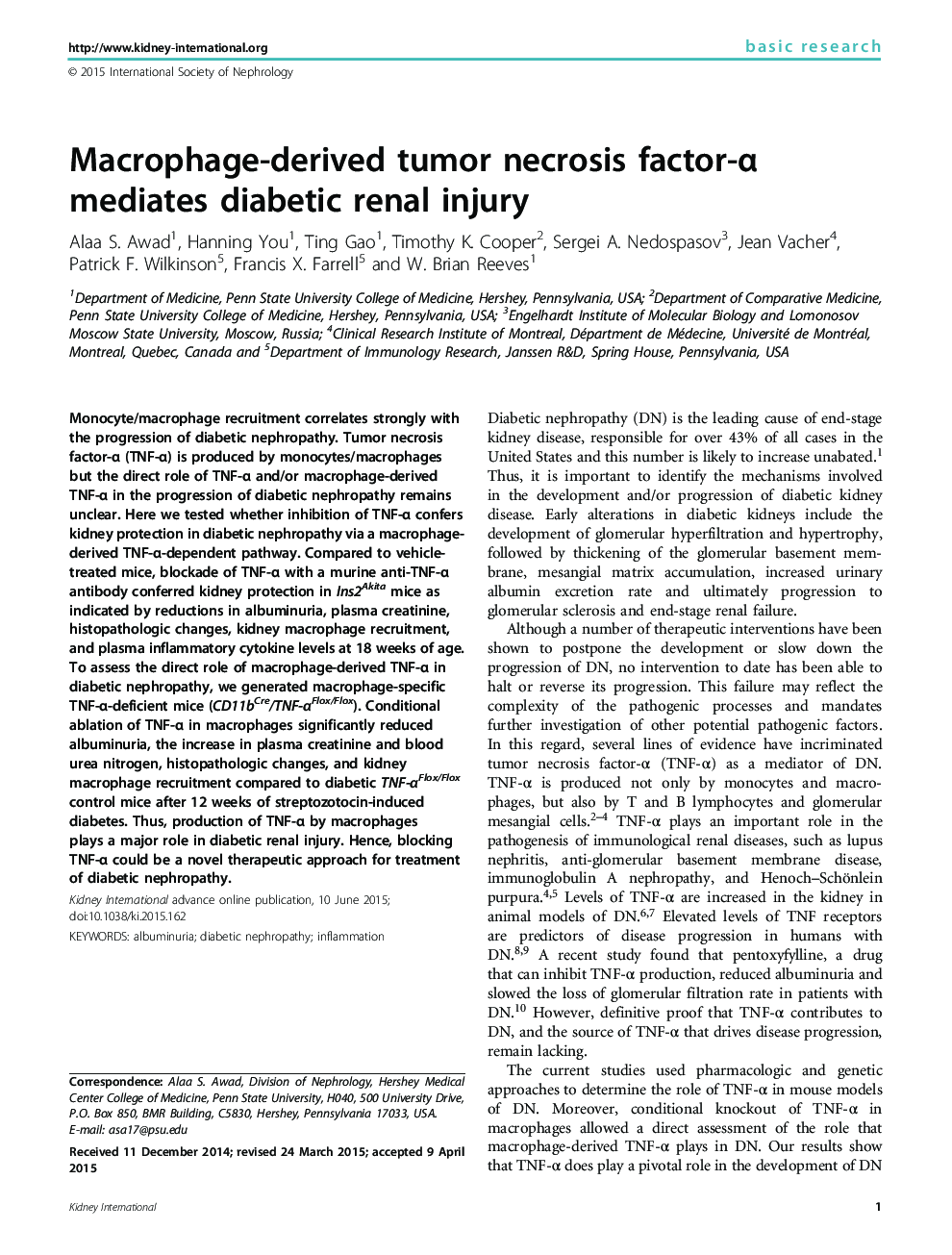| Article ID | Journal | Published Year | Pages | File Type |
|---|---|---|---|---|
| 6163394 | Kidney International | 2015 | 12 Pages |
Abstract
Monocyte/macrophage recruitment correlates strongly with the progression of diabetic nephropathy. Tumor necrosis factor-α (TNF-α) is produced by monocytes/macrophages but the direct role of TNF-α and/or macrophage-derived TNF-α in the progression of diabetic nephropathy remains unclear. Here we tested whether inhibition of TNF-α confers kidney protection in diabetic nephropathy via a macrophage-derived TNF-α-dependent pathway. Compared to vehicle-treated mice, blockade of TNF-α with a murine anti-TNF-α antibody conferred kidney protection in Ins2Akita mice as indicated by reductions in albuminuria, plasma creatinine, histopathologic changes, kidney macrophage recruitment, and plasma inflammatory cytokine levels at 18 weeks of age. To assess the direct role of macrophage-derived TNF-α in diabetic nephropathy, we generated macrophage-specific TNF-α-deficient mice (CD11bCre/TNF-αFlox/Flox). Conditional ablation of TNF-α in macrophages significantly reduced albuminuria, the increase in plasma creatinine and blood urea nitrogen, histopathologic changes, and kidney macrophage recruitment compared to diabetic TNF-αFlox/Flox control mice after 12 weeks of streptozotocin-induced diabetes. Thus, production of TNF-α by macrophages plays a major role in diabetic renal injury. Hence, blocking TNF-α could be a novel therapeutic approach for treatment of diabetic nephropathy.
Related Topics
Health Sciences
Medicine and Dentistry
Nephrology
Authors
Alaa S. Awad, Hanning You, Ting Gao, Timothy K. Cooper, Sergei A. Nedospasov, Jean Vacher, Patrick F. Wilkinson, Francis X. Farrell, W. Brian Reeves,
